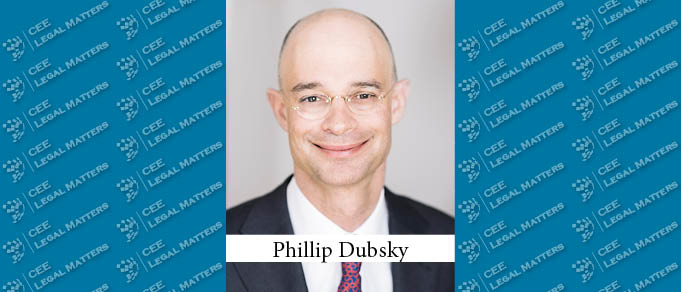The Austrian market seems very busy, largely in terms of investment rounds and consolidations in the past couple of months, with crypto and blockchain technology companies coming under pressure, according to Herbst Kinsky Partner Phillip Dubsky.
"Vienna has a strong biotech center and there are many investment rounds and acquisitions there, with financing and licensing deals," Dubsky begins. "In addition to those, there have been a few big transactions on the Austrian market," he notes. "Among the most prominent recent transactions was advising Raiffeisen and Uniqa in connection with potential changes to the Strabag shareholder consortium and takeover law issues, as a result of the sanctions regime targeting Oleg Deripaska," he adds. "Moreover, there were interesting start-up financing rounds, and quite a few of these companies, including GoStudent and Waterdrop, are now developing from start-ups to scale-ups."
In terms of private equity, Dubsky notes that the market is still busy, but "it is mainly driven by funds that are domiciled abroad, mostly from US and European investors. There were also a number of investments from the Middle East but, interestingly, they were more strategic investments rather than financing rounds or private equity-related transactions," he adds. According to Dubsky, the local private equity fund scene is still underdeveloped. "We have Speedinvest and some smaller funds, some of which are backed by taxpayer funds, but that’s about it," he notes.
On the M&A side, Dubsky also notes that "more warranty and indemnity insurance companies are trying to be involved in M&A transactions, consequently, there are increased activities in that area." According to him, "the legal sector seems to be reluctant to apply it, as insurance coverage in some cases is somewhat limited and not as attractive as advertised. Whether it will be successful or not is still to be seen, but there is definitely increasing competition among insurance companies." In addition, he says that the uncertainties in connection with the Austrian implementation of the FDI regime have adversely impacted the market for purchasers outside of the European Union.
Dubsky adds that, in Austria, "crypto and blockchain technology are still important, with a number of active blockchain investments and companies. However, since February 24, 2022, when the ‘crypto winter’ set in, the valuations may face downward corrections ." He highlights that "Austria’s Financial Market Authority has been quite open in terms of experimenting and providing sandbox tools for cryptocurrency providers. We’ll see whether the initial push will continue, as some of these companies are currently struggling to survive."
Dubsky highlights some forthcoming amendments to tax legislation. "Austria is willing to join the European efforts to tax energy companies on windfall profits, however, given that most Austrian energy companies are state-owned, there is a need to find less disruptive ways of dealing with it," he points out. "In terms of inflation, the government has introduced caps and subsidies for electricity, and there might be some for gas as well. Finally, the tax code will likely abolish cold progression in terms of salary increases, meaning that the legislation will limit the impact higher taxes have when moving up the tax brackets. The amendment also aims to combat the effects of inflation and is welcomed by everyone," he concludes.






















